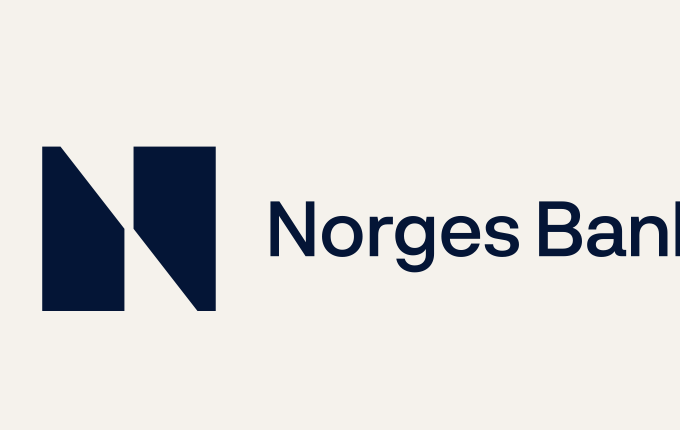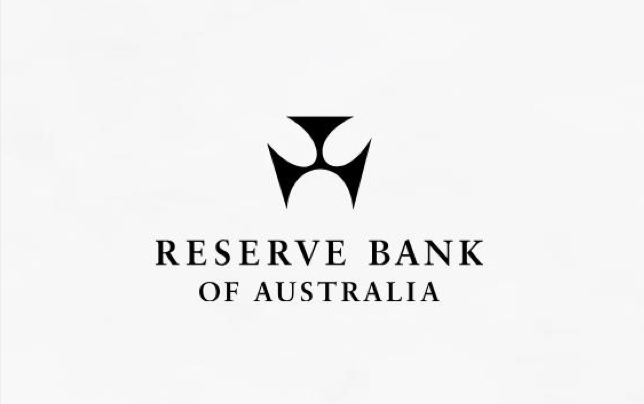
Where Fintech VCs Will Place Their Bets in 2017
By Penny Crosman for American Banker
Funding of fintech startups will cool in 2017, venture capitalists say, mainly because online lenders — the sector that first drew VCs’ attention — have lost some of their allure.
But at the same time, the VCs also anticipate growth in several other areas of financial services that are ripe for innovation, including wealth management, insurance and back-office operations.
It’s a natural evolution from the early days of modest fintech funding, before “fintech” became a household name, through its boom years — investment in U.S.-based financial technology startups grew from $1.6 billion in 2010 to $11.3 billion in 2015, according to Accenture — to an inevitable steadying of the market.
“The first year I decided to do fintech investment, in 2002, there was $300 million total invested in fintech companies,” said Matt Harris, managing director of Bain Capital Ventures. “Last year it was $10 or $12 billion. I don’t think we’re going back to $300 million. We might go down to $3 billion, which wouldn’t be all bad.”
Amy Nauiokas, founder and president of Anthemis Group, a London-based venture investment and advisory firm focused on fintech companies, points out another reason funding should cool: Some of the startup venture capital firms that set up shop in the beginning of the movement have given up.
“If I had a dime for every time I met an ex-financial-services professional who said they were going to set up a fintech fund and do some angel investing, I’d be very wealthy because everybody and their brother thought they could do it,” she said.
Some of these neo-VCs and their fintech protégés encountered regulatory resistance.
“People will say they’re expecting an Airbnb or Uber moment in financial services that will rock the industry,” Nauiokas said, referring to startups that transformed hospitality and transportation by skirting the rules protecting incumbents. “But the reality is you can’t compare a conversation with the NYC taxi commission with the SEC. The fact that people demand lower prices for their cab fare and more transparency on their accommodation is different from saying, ‘Hey, SEC, we don’t want you to protect us anymore. Can you pull back so we can have more transparency?’ ”
Disruption will continue, Nauiokas acknowledged. “But it has to be done with the existing structure. It can’t just be thrown on top of it.”
Those caveats aside, venture capitalists see several areas of financial services as fertile ground for fintech startups.
INSURANCE
Insurance technology startups received more than $1 billion in funding in the first half of 2016, in more than 80 deals, according to the research firm CB Insights. VCs expect this trend to continue.
“What we’ve seen in the last decade in fintech, we’ll see in the next decade in insurance tech,” said Arjan Schutte, founder and managing partner at Core Innovation Capital in Los Angeles. “It’s a massive, dormant, incredibly inefficient industry that will take a long time to unwrap. This is a multitrillion-dollar industry just in the U.S. — and super exciting, if you geek out on stuff like this.”
Nauiokas also sees opportunity here.
“It’s one industry that knows no bounds socioeconomically for people’s love and hate of it,” she said. “There are not many people in the world, whether they’re making $5,000 a year or a million a year, who don’t feel like they’re being taken advantage of by insurance, or resent the fact that they have to have it but can’t afford it. I think that’s a huge opportunity for massive disruption and there will be fantastic opportunities from there.”
Anthony Rjeily, lead for KPMG’s digital and fintech consulting practice in financial services, expects fintech startups to come up with better models for insurance underwriting, claims processing and, with the growth of the Internet of Things, “preventive insurance.” Connected devices in the home could monitor the status of key appliances, run analytics, and take any necessary precautions. If a furnace was running dangerously hot, for instance, the insurance company could dispatch a preventive service to keep it from shutting down or exploding.
BLOCKCHAIN
For the past year or so, VCs (like almost everyone else) have been intrigued by startup blockchain tech companies that offer distributed ledger technology for a gamut of purposes in financial services, from handling digital currency payments to recording derivatives trades to tracking consumer debt.
Anthemis recently shifted from investing in customer-facing fintech companies like Betterment, Trov (which helps insurance companies work with customers) and Payoff (a “financial wellness” company), to the layer beyond that — infrastructure technology that provides straight-through processes for financial services. “We think there’s a lot of work to be done in that space,” Nauiokas said. “It’s not always the sexiest and prettiest stuff, but fundamentally and structurally we think it’s the future of where the market will evolve.”
Blockchain technology is an example. “We’re extremely bullish on blockchain,” Nauiokas said. “While everyone else was going bitcoin, we focused on blockchain.”
According to CB Insights, VCs put $93 million in blockchain and bitcoin companies from 2009 to 2013. Then the pace picked up: They invested $993 million from 2014 to early 2016. While some observers are growing weary of blockchain hype, VCs apparently are not. A separate study from Juniper Research found that they invested $290 million in blockchain technology and bitcoin companies in the first six months of this year, with more than 30 startups receiving funding in that period.
ONLINE LENDING
Online lending suffered some setbacks in 2016, primarily due to bad news at Lending Club and Prosper. Lending Club’s CEO, Renaud Laplanche, was ousted in May amid alleged ethical breaches including misdated loans and conflicts of interest; in August, CFO Carrie Dolan resigned and the company reported an $81.4 million quarterly loss. Prosper announced 170 layoffs in May — 28% of the company’s staff — as buyers of its loans became concerned about loan quality; the company reported a $35 million loss in the second quarter. One exception is alternative lender Affirm, which raised $100 million in the second quarter.
“Last year, about half of fintech investment was in lending companies,” noted Harris. “Most of the large public financings were for Sofi, Avant, Prosper, Lending Club and OnDeck. There were also a lot of big, chunky private financings in lending companies in 2016. By the second half of next year I don’t anticipate many sizable equity investments in lending companies.”
Businesses that offer auto, small business, health care and student loans are all ripe for innovation, said Schutte. “Those are big, huge lending verticals that are different from the unsecured consumer loan we’ve seen primarily today.”
While many online lending fintechs promise to make getting a loan quick and easy, Harris demurs.
“A part of me quails at that,” he said. “It’s a big, consequential decision to take out a mortgage. The idea that you could do it with three keystrokes in Pokemon Go — I don’t know that’s what society needs.”
He agrees that streamlining and reducing paperwork is useful.
“But I hope the end game isn’t, I just butt-dialed myself a mortgage,” Harris said. “I don’t think these things should be that easy.”
PROCESS AUTOMATION AND AI
Artificial intelligence startups received around $1.7 billion from VCs in the first half of 2016. These included personal assistant bots like Penny (no relation to the author of this article) and a startup called Dataminr that analyzes Twitter data to deliver real-time market information.
Core Innovation Capital has been investing in companies that develop bot and AI software that helps financial advisers provide better advice “and avoid the principal agent conflict inherent in human beings selling a whole suite of financial services, which contributes to people being over-covered or under-covered in all kinds of products,” Schutte said.
“There’s a lot of interest from larger financial institutions to look at those types of applications to automate their processes in the front, middle and back office,” Rjeily said. “I think we’ll see continued pressure from a cost management perspective in financial services, continue to see high interest and demand around those types of applications.”
ROBO ADVISERS
Betterment raised $100 million from VCs in March, but for the rest of the robo advisers, growth has slowed.
For Bain Capital Ventures’ fintech portfolio, Harris said he tends to look for companies and solutions designed for openness and transparency, as opposed to Wall Street’s “historical strategies that took advantage of customer ignorance.”
Harris recently invested in SigFig, whose customer-facing wealth management software he considers customer-friendly, lower cost and more modern than what banks have offered in the past. The company made a deal with UBS this year.
Harris also invests in a startup called Novus that provides objective information about hedge funds to their customers, which include pensions, endowments, and sovereign wealth funds. “Novus allows them to pierce the veil of hedge fund manager storytelling, and understand what their managers are doing, what risks they’re taking, and how they’re producing returns and the likely availability of those returns,” he said. “It’s about taking something that’s historically been opaque and making it far more granular and transparent.”
Another fintech startup Harris supports is OpenFin, a provider of financial markets information that has set itself up as a competitor to Bloomberg and its specialized market data terminals.
OpenFin lets anyone publish a software application, such as a trading program, such that it can run in a browser, yet have the functionality of a terminal, Harris said.
“They work with half the major banks to develop their applications in an OpenFin-compatible way and push them out to the customers without having to go through Bloomberg,” Harris said.
Harris’s most famous startup is iEX, the new stock exchange with the built-in “speed bump” that was featured in Michael Lewis’s book Flash Boys. The speed bump is meant to protect mom and pop investors from being exploited by high-speed traders. In September, iEX officially began operating as an independent stock exchange that competes with the New York Stock Exchange and Nasdaq.
“We have high hopes they can reform what’s become a rigged system,” Harris said.
REAL ESTATE
Another Harris beneficiary is Roofstock. About 15 million homes in America — 13% — are owned by a third party and rented, he explained. Roofstock provides a marketplace for people interested in buying leased homes and owners of leased homes.
“Instead of an extremely long, complicated process of emptying and selling, they can transact without any disruption to the tenant,” Harris said. The company launched in January and will sell $50 million worth of homes this year, he said.
And Point, a real estate fintech company that allows homeowners to give up a share of ownership in their home in exchange for a smaller monthly mortgage payment, raised $8.4 million in a Series A round led by investing giant Andreessen Horowitz in September. The startup “fundamentally rethinks the largest asset class in the United States — owner-occupied residential real estate (> $10 trillion!),” wrote Alex Rampell, a general partner at Andreessen Horowitz, in a blog.
THE UNDERBANKED
Schutte got into fintech investing after being inspired by what the microlending pioneer Grameen Bank was doing in Bangladesh. “That got me thinking about financial services writ large, and its capacity to help normal, everyday people get ahead, as opposed to just being a generic tool.”
He came to the realization that it’s “crazy expensive” to be poor and that many people use high-cost alternatives to traditional finance. He also realized there was a huge opportunity to use technology to improve service to the underbanked. Core Innovation Capital now invests in fintech companies offering prepaid cards, remittances, and payday loan alternatives.
It no longer focuses on the lowest-income people.
“You don’t have to be poor to be super vulnerable,” Schutte said. “I live in L.A., and I find it sad how many BMWs are parked outside of McMansions of people who cannot make ends meet. So this isn’t just about the bottom 1%. It’s about the bottom 90%, with a special focus on low and moderate income.”
The team at Core tries to invest in technology that can provide improvements in transparency, security and mobility, “to make life way better for Joe Six-Pack.”
One company it’s funding is Oportun (formerly Progressive Financiero), which lends to people who don’t have a high FICO score but do well by other measurements.
“They are picking off the best amongst the invisible, which a lot of people who are subprime are,” Schutte said.
In Schutte’s view, people with low FICO scores aren’t necessarily high risks.
“In the murky, skunky world of payday lending, there are 30% default rates at worst,” he said. “That still means that a handy majority of people are paying back on time and as promised, so 70% are mispriced. To me, the opportunity isn’t about making loans to people who aren’t going to repay them, it’s about assessing people’s risk dramatically better.”
Better cash flow data can come from aggregators like Yodlee and Plaid, Schutte noted. Utility and rental payments can be obtained in some cases. Social media data can be mined for clues to creditworthiness. Credibility rankings at eBay, Amazon, Uber, PayPal and such could be factored in. Those latter two data types may or may not be acceptable under Fair Credit Reporting Act, he noted, though some online lenders are experimenting with them.
THE FINTECH EFFECT
As fintech startups challenge the establishment, Schutte sees retail banks becoming utilities, providing treasury and compliance functions, while fintech startups handle the customer-facing side of banking. This is a thought that would terrify some bankers, but has been embraced by others, including Suresh Ramamurthi, who runs CBW Bank in Weir, Kan., and has said he doesn’t mind being a utility as long as he’s making money.
“The bank isn’t going away,” Schutte said. “I think there’s going to be a diversity of front ends the customer will interact with more, where the bank serves a compliance and treasury function as opposed to a customer facing function.”
First appeared at AB




